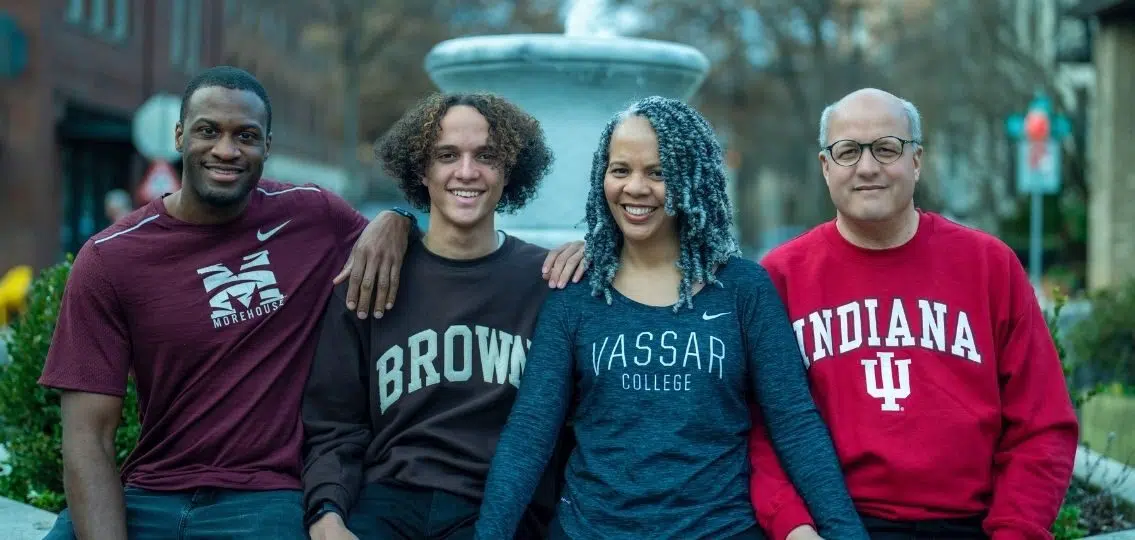“I’m going to my room. I can’t watch anymore. I wasn’t prepared for that. It’s too much.”
That was our high school senior son’s reaction to entering the house and watching the news of the Tops Grocery Store massacre in Buffalo, New York, a race-related hate crime carried out in a predominantly African American neighborhood.
Pausing before going into his room to tell me he reached his limit is a sign. My son is not okay, and he wants me to know it. Each race-related mass shooting is heartbreaking. Even more so for this Black teen because he understands that he or his brothers could be targeted in the same way.
Recently, at Robb Elementary School in Uvalde, Texas, 19 children and two teachers lost their lives and 17 more were injured in the second-deadliest school shooting in U.S. history. There have been more than 40 school shootings this year. It’s only May.
Sometimes It Feels Personal
I understand why our son was shaken. He’s still a student and one of his brothers is a teacher. It could happen to them. I was an adult during the April 20th,1999 Columbine High School shooting. This type of news shouldn’t shock me, but it does. Hearing these breaking news stories hasn’t gotten easier. Whenever there’s a mass murder, my heart skips a beat, I try not to let my tears flow, and I mentally GPS my loved ones. After I steady myself, I go into caretaker mode.
Because I’m raising Black sons, racially motivated attacks are particularly devastating. Fear and grief sprint to the surface of my emotional well. One of my first thoughts is, “That could be us.”
The victim could have been a loved one. The store or church is just like ours. These things aren’t happening to other people. They’re happening to people who could be us.
Too often we see devastated families displayed in the media as loved ones of hate crime victims. Continual exposure to such imagery is harmful for any bystander. It’s even more damaging for those who know that rather than the people on television, they could be the ones searching for just the right picture of a slain family member. You know, the one that depicts possibility, charm, humility, intelligence, kindness, and all the other traits that will help the public conclude that they “didn’t deserve to die that way.” Every time I see one of those press conferences, I wonder which pictures of our sons I’d choose. Would it be the most recent professional headshot, perhaps our last Christmas card photo?
Dwelling on these losses could emotionally paralyze our family. That’s why we need ongoing self-management in the face of unimaginable violence and racist attacks. We must regulate our responses–otherwise, we’ll be permanently frightened.
Our family has developed a coping routine that helps us process horrendous, preventable acts of violence.
Coping with Tragedy
Here are the steps we take:
- Use the least salacious news sources to inform ourselves of what has occurred.
- Discuss the tragedy and how we feel about it.
- Permit ourselves to disconnect from all news sources and recharge to avoid getting stuck in the seemingly endless tragedy media loop.
- Brainstorm talking points for when we reconnect and inevitably must talk about it with people outside of our bubble.
- Act. Once we understand and recharge, we can be helpers.
The coping process may last hours, or it may last days. Each person takes as long as they need. Of course, this assumes the current news event isn’t an emergency that requires our immediate and continued attention. In that case, we’d act first and then process.
Despite their calm outward appearance, our sons are internalizing and contemplating the dangers in the world around them in ways I can’t guess at. I’ve learned that we can’t wait for breaking news stories to take one another’s emotional temperature.
During the 2020 COVID-19 shutdown, I found it helpful to perform spontaneous drop-in wellness checks with family members, saying, “This is how I’m feeling. How do you feel?” That brief comment is enough to ignite candid conversations. It gives the recipient permission to be vulnerable. Once shared, we can deal with their reactions and coping techniques together.
We all hope that the most recent tragedy is the last. Unfortunately, that doesn’t seem likely any time soon. Until it is, I suggest that each family develops ongoing coping strategies. Check on each other. Love and honor each other. It’s easier to be brave in these scary times when we feel like we’re not alone.




